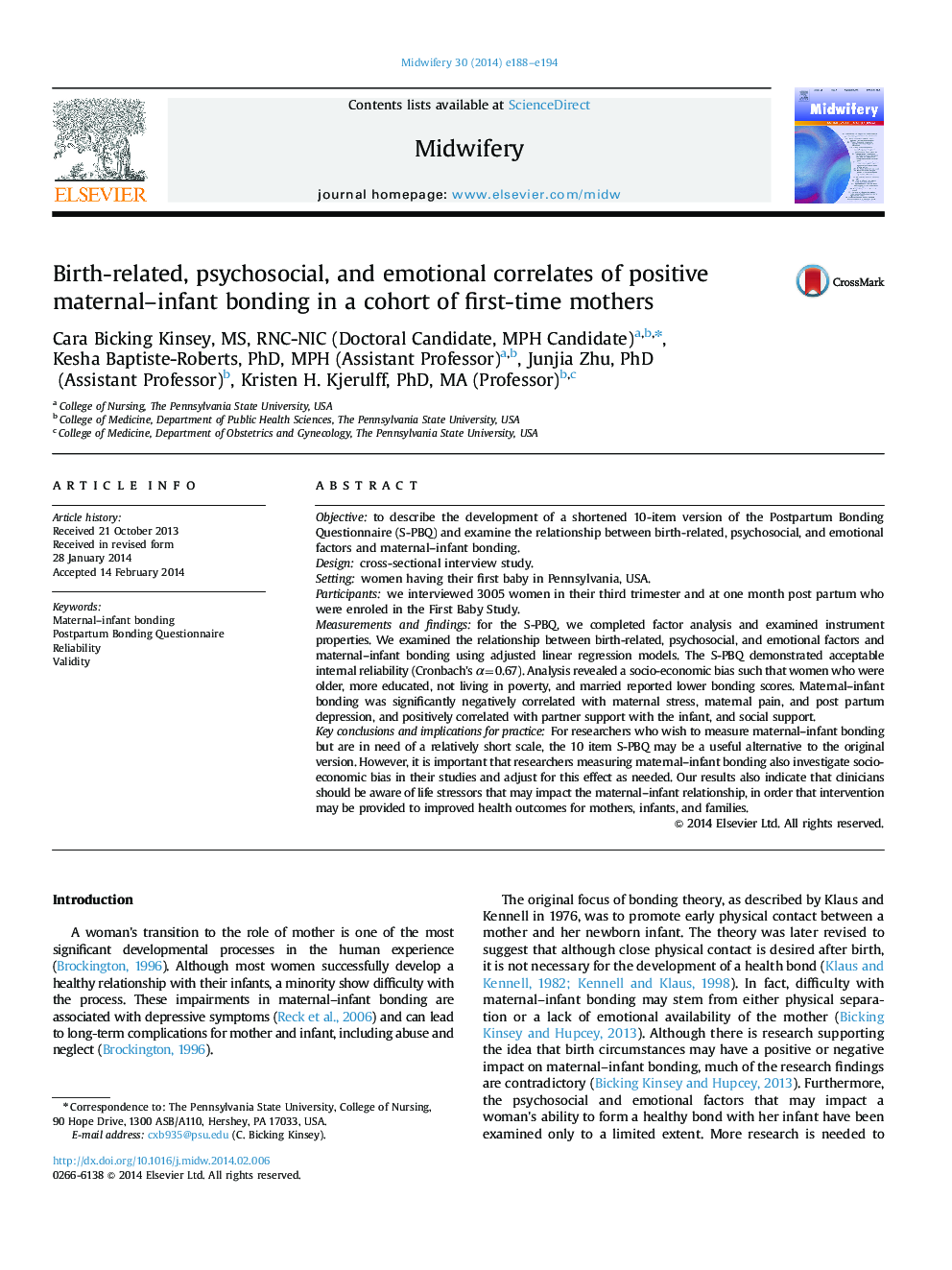| کد مقاله | کد نشریه | سال انتشار | مقاله انگلیسی | نسخه تمام متن |
|---|---|---|---|---|
| 1084622 | 951308 | 2014 | 7 صفحه PDF | دانلود رایگان |
Objectiveto describe the development of a shortened 10-item version of the Postpartum Bonding Questionnaire (S-PBQ) and examine the relationship between birth-related, psychosocial, and emotional factors and maternal–infant bonding.Designcross-sectional interview study.Settingwomen having their first baby in Pennsylvania, USA.Participantswe interviewed 3005 women in their third trimester and at one month post partum who were enroled in the First Baby Study.Measurements and findingsfor the S-PBQ, we completed factor analysis and examined instrument properties. We examined the relationship between birth-related, psychosocial, and emotional factors and maternal–infant bonding using adjusted linear regression models. The S-PBQ demonstrated acceptable internal reliability (Cronbach׳s α=0.67). Analysis revealed a socio-economic bias such that women who were older, more educated, not living in poverty, and married reported lower bonding scores. Maternal–infant bonding was significantly negatively correlated with maternal stress, maternal pain, and post partum depression, and positively correlated with partner support with the infant, and social support.Key conclusions and implications for practiceFor researchers who wish to measure maternal–infant bonding but are in need of a relatively short scale, the 10 item S-PBQ may be a useful alternative to the original version. However, it is important that researchers measuring maternal–infant bonding also investigate socio-economic bias in their studies and adjust for this effect as needed. Our results also indicate that clinicians should be aware of life stressors that may impact the maternal–infant relationship, in order that intervention may be provided to improved health outcomes for mothers, infants, and families.
Journal: Midwifery - Volume 30, Issue 5, May 2014, Pages e188–e194
